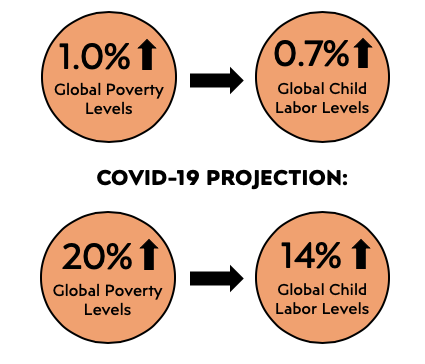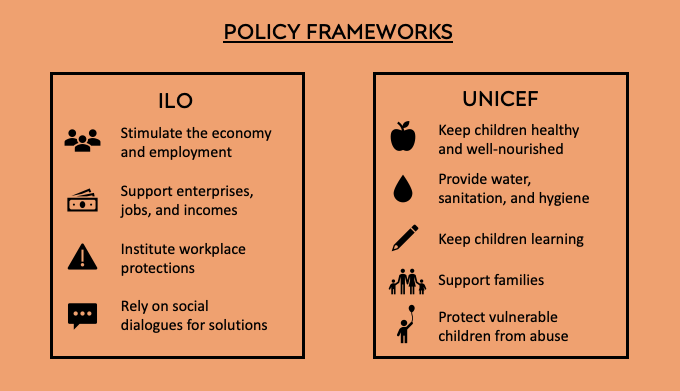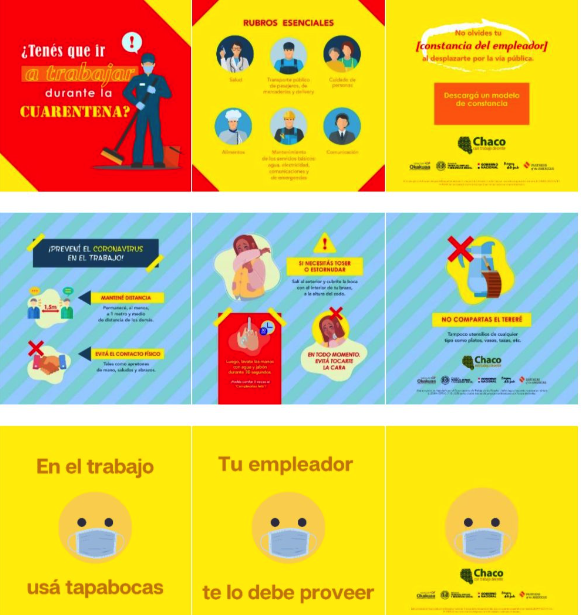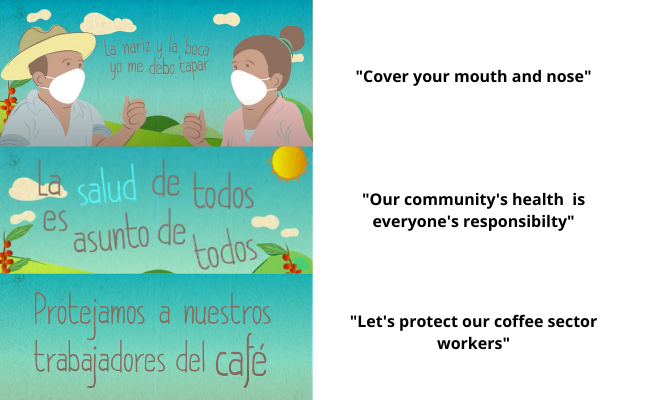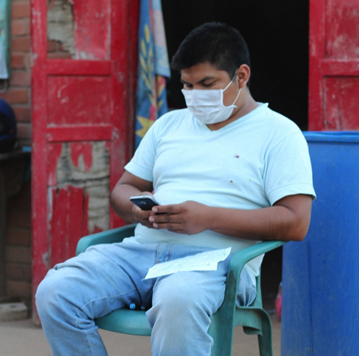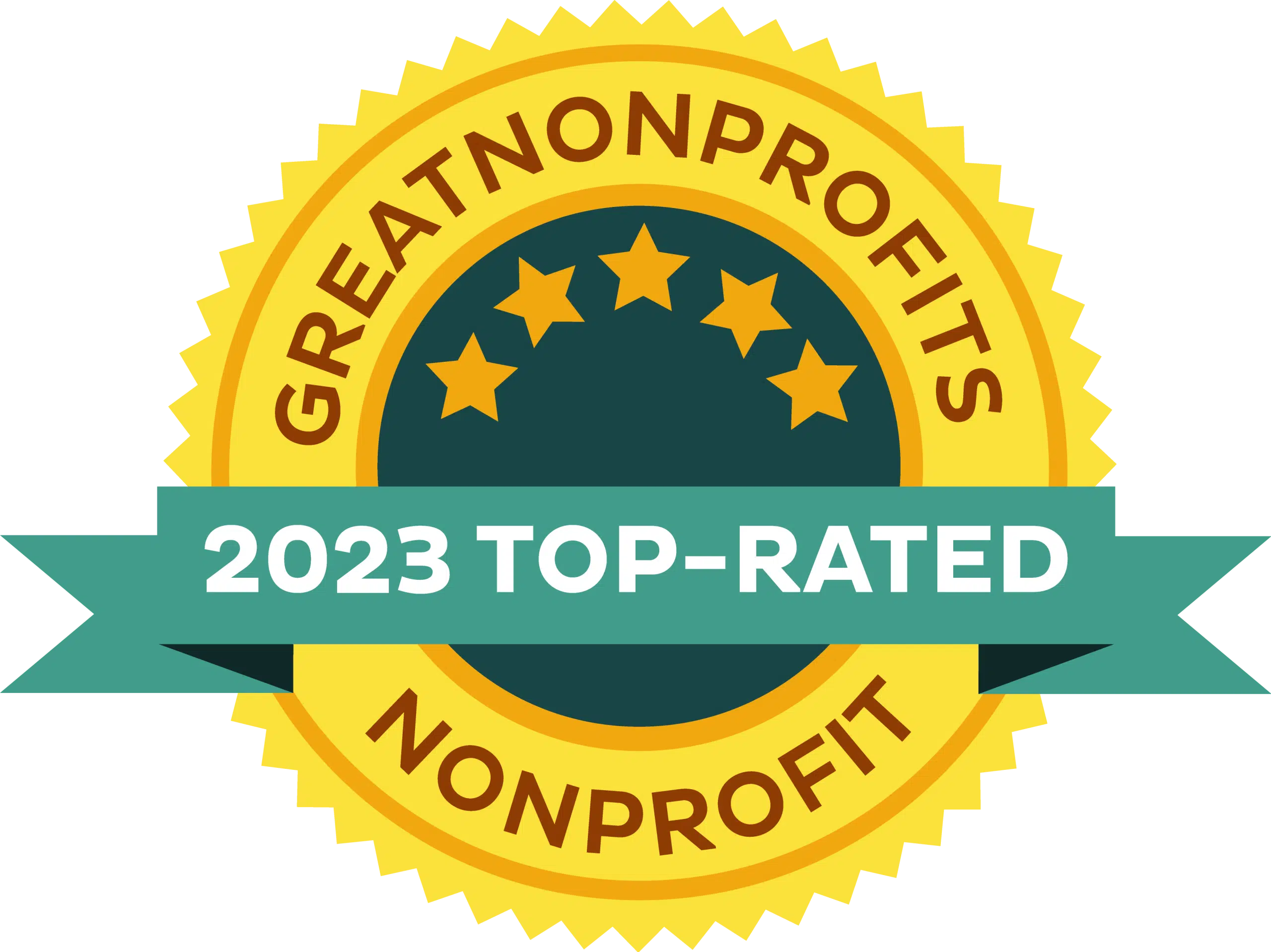Poverty is projected to increase by at least 20% in 2020, largely as a result of COVID-19, which could increase rates of child labor by 14%, according to a joint paper by the International Labour Organization (ILO) and UNICEF.
The report was released in time for the World Day Against Child Labor (WDACL) on June 12. For 2020, the ILO centered this annual commemoration on COVID-19 and its impacts on child labor. The 2020 WDACL theme, “Protect Children from Child Labor, Now More Than Ever,” emphasized the need for increased global action to prevent child labor during the COVID-19 crisis.
The ILO and UNICEF released their joint paper to address the new challenges posed by the virus and present their organizational policy responses to these increased risks. This paper emphasized that the global number of people in extreme poverty is expected to rise and with poverty comes increased rates of child labor. As households search for every available means to survive, many use child labor to fill gaps in parents’ incomes.
On a global basis, a one percentage point rise in global poverty levels tends to correlate with a 0.7 percentage point increase in child labor; therefore a 20% rise in global poverty levels would lead to a subsequent 14% increase in child labor.
Graphic created by Partners based on UNICEF/ILO Joint Paper
In addition, the report stated that 55% of people globally (about four billion) do not have any government-provided social protection, making them even more vulnerable to these types of economic crises. Blocked international money flows and an inability to travel for work opportunities have also led families into states of economic desperation.
These circumstances promote a transition from formal employment sectors – government-regulated sectors where labor abuses are less prevalent – to informal ones that are largely unregulated and where labor abuses are widespread. In these informal sectors, children are much more likely to be exploited for their labor due to the dearth of regulations.
For those who are still able to work, parents risk exposing themselves to COVID-19 and bringing the virus home to their families. Further complicating the crisis, in many countries, public health services are not adequate in meeting the challenges posed by the spread of the virus.
Graphic created by Partners based on UNICEF/ILO Joint Paper
The ILO and UNICEF have each developed detailed policy responses to counter these new risks head-on. ILO’s policy framework focuses on stimulating the economy and employment by supporting enterprises, jobs, and incomes, as well as instituting workplace protections. UNICEF’s approach is more focused on directly aiding children by assuring that they are healthy and well-nourished, have access to water, sanitation, and hygiene, and are enrolled in school. UNICEF also plans on supporting families while protecting children from abuse in all forms.
Likewise, other global actors are working hard to address these issues. The U.S. Department of Labor (USDOL) plays a key role in addressing child labor globally and projects funded by the department across the world have adapted and innovated to respond to the impacts of COVID-19. In 2020, Partners of the Americas (Partners) and its USDOL-funded projects have continued its efforts to combat child labor, forced labor, and improve working conditions in Latin America and the Caribbean throughout the pandemic.
Partners’ Child Protection Unit (CPU) joined the ILO’s virtual celebration on June 12 to commemorate WDACL and our Colombia Avanza and Palma Futuro projects virtually attended the Colombian Ministry of Labor’s webinar to share the projects’ responses to COVID-19.
Since March 2020, when the pandemic began to have substantial impacts on Latin America, our USDOL-funded Paraguay Okakuua, Colombia Avanza, and Palma Futuro projects have quickly developed extensive communications campaigns to reduce the impacts of COVID-19 by preventing them at their source: the virus itself. As a result of these efforts, Partners has helped increase prevention efforts in Colombia and Paraguay’s agricultural sectors and rural communities. Graphics created by Partners, such as the one below, have been distributed widely across each of these project’s platforms.
Graphic created by Paraguay Okakuaa
Colombia Avanza has been working since the beginning of the outbreak with local partners and stakeholders, such as the National Federation of Coffee Growers of Colombia (FEDECAFE), to implement and develop radio messages, social media content, and general informative material to keep rural coffee-producing communities informed. All of this content is highly accessible to viewers of a wide variety of ages and backgrounds, utilizing social media platforms like Facebook and Twitter.
Where social media is not accessible, radio messages spread prevention information quickly and effectively. In rural areas where access to the internet and information is particularly limited, these communications campaigns address a crucial need to deliver information regarding COVID-19 to these communities.
One example of these campaigns is the “#LaSaludDeTodosEsElAsuntodeTodos” (“Our Community’s Health is Everyone’s Responsibility,” in English) animated video, directed toward workers in the Colombian coffee sector. The video features a catchy jingle that highlights the importance of sanitary practices for the sake of overall community health. A few of its main messages are shown in the panels below:
To leverage technology and expand the project’s reach, Colombia Avanza created a COVID-19 Response Kit, compiling information on the project’s communications materials and resources.
The Palma Futuro project hosted a webinar on May 20, 2020, in collaboration with implementing partner Social Accountability International to continue engaging partner companies in Colombia throughout the shelter-in-place order. This webinar focused on labor conditions and social compliance systems in the Colombian palm oil sector, in the context of COVID-19 challenges.
In Paraguay, using the slogan “With decent work we can prevent coronavirus,” the Paraguay Okakuaa project has successfully distributed messages, animated videos, and fliers to encourage preventative practices. With help from a local volunteer who translated the materials into Nivaclé, the local language of his community Cayin ôClim, the reach of the campaign was substantially amplified.
Local volunteer Faustino Diaz translates the campaign into Nivaclé
By spreading information on COVID-19 prevention, Partners continues to combat child labor, now in the face of a global pandemic and its subsequent increases in poverty, as the ILO/UNICEF paper uncovered. Despite these unprecedented challenges, Partners is persevering. We are addressing the pandemic’s impacts in these communities by countering them at their source. In doing so, Partners hopes to lower the risk of children entering exploitative labor conditions during COVID-19 and beyond.
